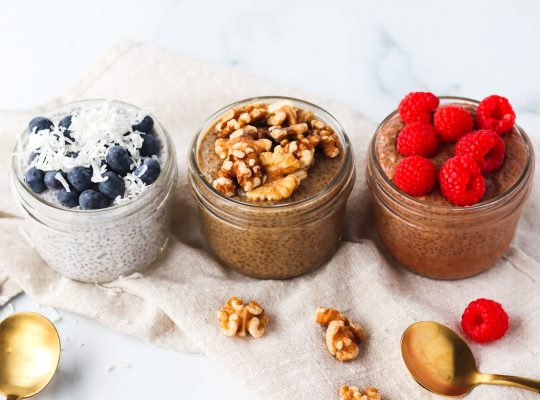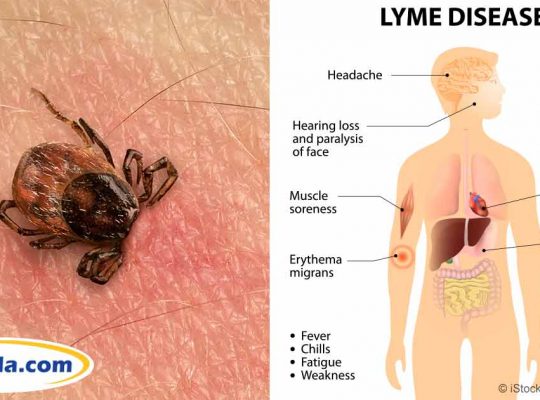In natural medicine, gut health is considered an important pillar of health. Hippocrates, the famous physician of Ancient Greece is attributed with the quote, “Let food be thy medicine and medicine be thy food.”
“[…] I will apply dietetic measures for the benefit of the sick according to my ability and judgment; I will keep them from harm and injustice. I will neither give a deadly drug to anybody if asked for it, nor will I make a suggestion to this effect. Similarly, I will not give to a woman an abortive remedy. In purity and holiness, I will guard my life and my art. […]” Excerpt from the Hippocratic Oath (1943)
Hippocrates didn’t have the benefit of the advanced microbial and cellular testing we have now but made the assertion based on observation of patterns. Only in recent years, research into the gut microbiome has revealed links between the gut and the brain, the gut microbiome and neurotransmitter balance, the gut microbiome and coronary heart disease, and imbalances in the gut microbiome and breast cancer, and led to insights about microorganisms in other human body sites.

What Is the Gut Microbiome?
Trillions of microorganisms – bacteria, viruses, and fungi – reside in the digestive tract.
These microorganisms are involved in the digestion of foods, regulate gastrointestinal pH, metabolism, appetite, inflammation, and cognition. Furthermore, the gut microbiome helps educate the immune system to differentiate between harmful pathogens, beneficial microbes, and self. In this way, the gut microbiome serves as a barrier against harmful pathogens, supports the immune system, and helps prevent excessive inflammation. Not to stop here, gut bacteria synthesize certain vitamins, such as B vitamins and vitamin K, and produce neurotransmitters. A whopping 95% of serotonin and up to 50% of dopamine are made in the gut.
Gut microbiotas are not only important for nutrient absorption but also involved in detoxification processes. Optimal detoxification of estrogen through the gut is important for hormonal balance and breast cancer prevention.
The wonderful feeling of a healthy gut can be experienced as:
- Healthy appetite
- Smooth digestion without discomfort, bloating
- 1-3 bowel movements per day with a healthy color and consistency
- Metabolic health – balanced blood sugar, low or no systemic inflammation, healthy weight
- Lack of food sensitivities
- Balanced positive mood and mental clarity
- High level of beneficial species, low level of undesired species, high diversity of gut microbes
- Intact, protective mucosal lining for optimal nutrient absorption and defense against pathogens
- Balanced synthesis and regulation of hormones and neurotransmitters
Signs of impaired gut health include:
- Bad breath
- Fatigue
- Abdominal cramps
- Diarrhea
- Constipation
- Acid reflux
- Food intolerances
- Gas or feeling of fullness
- Nausea and upset stomach
- Systemic inflammation
- Achy body
- Skin problems – acne, psoriasis, and eczema
- ADHD, trouble concentrating, or brain fog
- Mood issues, anxiety, and depression
- Obesity and insulin resistance
Metabolism
Gut dysbiosis may lead to poor nutrient absorption and micronutrient deficiencies despite an apparently adequate diet. An unhealthy gut microbiome can negatively impact blood sugar regulation and contribute to insulin resistance. That, in combination with cravings, may lead to weight gain or even obesity.
Functional medicine aims to keep the gut lining and the gut microbiome in balance. Especially when the focus is on reducing systemic inflammation, and reaching and maintaining a healthy weight, supporting butyrate-producing bacteria and healthy levels of GLP-1 producing bacteria such as Akkermansia muciniphila is important while keeping unwanted bacteria and fungi in check.
The good news is that the gut microbiome can be repaired with a fresh, whole-food-based diet and professional-grade supplements.
Gut dysbiosis, chronic inflammation, and health issues
An impaired gut microbiome entails more than just bloating and occasional constipation. It has been linked to the development and progression of autoimmune diseases, such as rheumatoid arthritis (RA), inflammatory bowel disease (IBD), Crohn’s, Parkinson’s disease, and type 1 diabetes. A reduced abundance of anti-inflammatory bacteria, such as Faecalibacterium prausnitzii, and increased levels of pro-inflammatory bacteria, such as Prevotella copri and Klebsiella, have been observed in individuals with RA. Dysbiotic patterns in IBD involve decreased microbial diversity and an overabundance of Proteobacteria such as Enterobacteriaceae. An overabundance of Fusobacteria has been linked to multiple sclerosis (MS).
Low levels of Faecalibacterium prausnitzii have also been linked to a higher risk of developing breast cancer.
Skin health
Real beauty starts on the inside. Gut dysbiosis can lead to skin problems including eczema and psoriasis. Eczema can be caused by a decrease in beneficial bacteria like Bifidobacterium and an increase in opportunistic pathogens like Staph aureus and Candida albicans. By the way, bifidobacterium is the most abundant gut bacteria in breastfed babies. Formula-fed babies often show eczema rashes on their skin. Similarly, people who suffer from psoriasis have significant imbalances in the gut microbiome compared to healthy controls. In both cases, eczema and psoriasis, bovine colostrum can be supplemented to rebalance beneficial gut microbiotas.
Cardiometabolic Health
Dysbiosis can lead to the production of trimethylamine-N-oxide (TMAO), an undesired metabolite known to cause systemic inflammation and shown to promote atherosclerosis and the risk of cardiovascular events. Also, as stated earlier, dysbiosis can contribute to obesity and type 2 diabetes, both of which are significant risk factors for cardiovascular disease. Both conditions, marked by chronic low-grade inflammation, are impacted by the systemic presence of proinflammatory toxins originating from the gut, such as lipopolysaccharide (LPS).
Functional Medicine Labs to Test for Root Cause of Gut Health Issues
Functional Medicine labs provide insight into many aspects of gut health. They can test how well nutrients are absorbed and for preferred and for potentially damaging metabolites. Testing can also assess food and histamine sensitivities, heavy metals, parasites, mold exposure and mycotoxins, the impact of stress, organic acids and other biomarkers, and even assess the complete gut microbiome.
A GI-Map test can give a thorough look into the microbiome’s health. This test analyzes the DNA of specific microbiota to provide detailed information about microbe diversity and balance while also giving information on gut permeability. A Hair Tissue Mineral Analysis tests if heavy metal toxicity is a concern and if minerals are sufficiently absorbed and balanced.
What causes poor gut health?
The gut microbiome is highly responsive to various factors that can alter its composition and function. Diet is the most important factor when it comes to promoting gut health. A diet rich in fiber and plant-based foods may promote a more diverse and beneficial microbiome, while a diet high in processed foods, sugar, artificial sweeteners, and unhealthy fats, but low in fiber and antioxidants may negatively impact the microbiome.
Antibiotics, while effective in treating infections, eliminate both harmful and beneficial bacteria, disrupting the microbial balance. This disturbance may lead to long-term alterations in the gut microbiota. Always make nurturing gut microbiome balance an important follow-up step to each antibiotic treatment you may receive. Other factors that affect the gut are certain genetic mutations, use of prescription medications, and the use of antibiotics, which can have a rapid and lasting impact on the gut microbiome.
Environmental exposure to toxins, such as heavy metals, pesticides, mold, and food additives, can directly alter microbial diversity and function. Foods likely to contain glyphosate (e.g., genetically modified crops, bioengineered food products), which is an herbicide that can disrupt the gut lining, should be avoided.
Prolonged stress, lack of sleep, and lack of exercise are all linked to impaired gut microbiome balance and the onset of IBS.

How to support a healthy gut?
In folk medicine it has been known for a long time that when we feed bacteria, for example by eating sauerkraut, kvass, kefir, or other fermented foods, it improves digestion, however if excessive amounts are consumed, it may cause diarrhea. When we primarily feed yeast (fungi), by eating large amounts of simple carbs (sugar), it may push the entire gut microbiome out of balance, e.g. causing candida overgrowth, which in turn causes bloating, constipation, low energy levels, and in some cases itchy skin rashes.
Functional Medicine practitioners focus on supporting gut health with a whole food nutrition plan, gut health-supporting supplements, and lifestyle adjustments.
- Add probiotic foods like yogurt, kefir, and sauerkraut, or supplements
- Eat more prebiotic foods like onions, garlic, bananas, raw carrots, lentils, and whole grains
- Consume fiber-rich foods, fruits, vegetables, and whole grains
- Limit processed foods and added sugars
A high-fiber diet feeds those bacteria that create short-chain fatty acids, including acetate, propionate, and butyrate, which are the fuel sources for our gut lining cells. Butyrate is particularly important for a healthy anti-inflammatory response.
Almost 2,500 years after Hippocrates, it still stands true: You Are What You Eat.
Supplements & Herbs
A general gut health-supporting protocol can include L-glutamine, an amino acid that helps heal the gut lining, and natural anti-inflammatories such as omega-3 fatty acids, curcumin, and beets. Pro- and prebiotics help to promote diversity of the microbiome. Zinc helps rebuild an impaired gut lining.
Antimicrobial herbs such as oregano and thyme are among the natural remedies against pathogens such as H. pylori, especially if they have been tested to be resistant to standard-antibiotics treatment. And, for example, lotus seed resistant starch and quercetin have been shown to help with histamine sensitivity.
References:
Clapp, M., Aurora, N., Herrera, L., Bhatia, M., Wilen, E., & Wakefield, S. (2017). Gut microbiota’s effect on mental health: The gut-brain axis. Clinics and practice. 7(4). https://doi.org/10.4081/cp.2017.987
Ma, J., Sun, L., Liu, Y., Ren, H., Shen, Y., Bi, F., Zhang, T., & Wang, Xin. (2020). Alter between gut bacteria and blood metabolites and the anti-tumor effects of Faecalibacterium prausnitzii in breast cancer. BMC Microbiology. 20. https://doi.org/10.1186/s12866-020-01739-1
Singh, R. K., Chang, H. W., Yan, D. et al. (2017). Influence of diet on the gut microbiome and implications for human health. J Transl Med. 15, p. 73. https://doi.org/10.1186/s12967-017-1175-y
Trøseid, M., Andersen, G. Ø., Broch, K., & Hov, J. R. (2020, February 01). The gut microbiome in coronary artery disease and heart failure: Current knowledge and future directions, Review. 52, p. 102649. https://doi.org/10.1016/j.ebiom.2020.102649
Tsiompanou, E., & Marketos, S. G. (2013). Hippocrates: timeless still. Journal of the Royal Society of Medicine, 106(7), pp. 288–292. https://doi.org/10.1177/0141076813492945
Velicer, C. M., Heckbert, S. R., Lampe, J. W., et al. (2004). Antibiotic Use in Relation to the Risk of Breast Cancer, JAMA, 291(7), pp. 827-835. https://doi.org/10.1001/jama.291.7.827
Wilhelmi de Toledo, F., Buchinger, A., Burggrabe, H., Hölz, G., Kuhn, C., Lischka, E., Lischka,N., Lützner, H., May, W., Ritzmann-Widderich, M., Stange, R., Wessel, A., Boschmann, M., Peper, E., & Michalsen, A. (2013). Fasting Therapy – an Expert Panel Update of the 2002 Consensus Guidelines. Forsch Komplementmed. 20, pp. 434-443. https://doi.org/10.1159/000357602
Wu, H., & Ballantyne, C. M. (2020). Metabolic Inflammation and Insulin Resistance in Obesity. Circulation Research. 126(11), pp. 1549-1564. https://doi.org/10.1161/CIRCRESAHA.119.315896
Wu, L. L., Chiou, C.C., Chang, P.Y., & Wu, J.T. (2004). Urinary 8-OHdG: a marker of oxidative stress to DNA and a risk factor for cancer, atherosclerosis and diabetics. Clinica Chimica Acta. 339(1–2), pp. 1-9. https://doi.org/10.1016/j.cccn.2003.09.010
Xuan, C. et al. (2014). Microbial Dysbiosis Is Associated with Human Breast Cancer. PLoS ONE 9. e83744.







